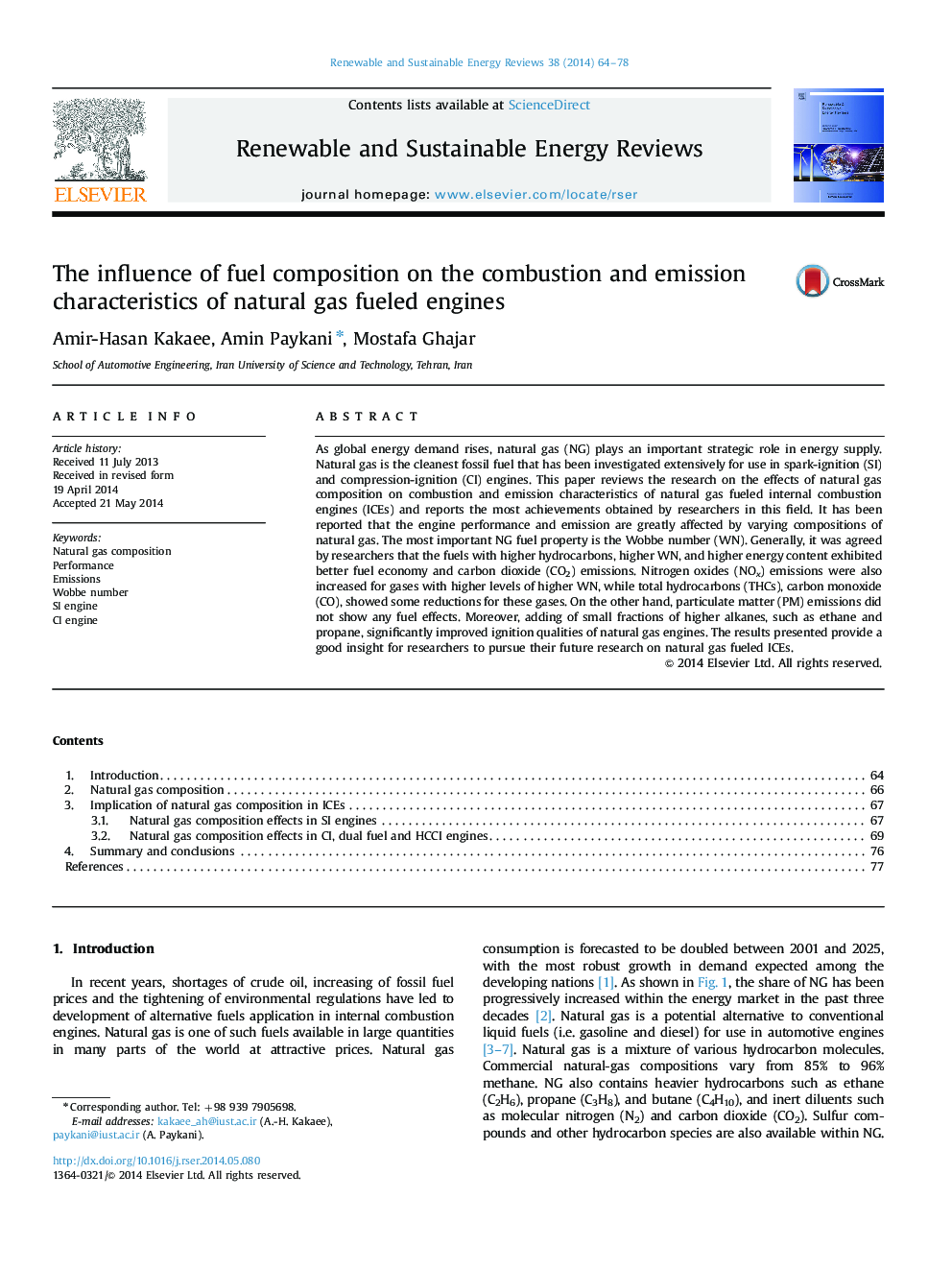| Article ID | Journal | Published Year | Pages | File Type |
|---|---|---|---|---|
| 8119417 | Renewable and Sustainable Energy Reviews | 2014 | 15 Pages |
Abstract
As global energy demand rises, natural gas (NG) plays an important strategic role in energy supply. Natural gas is the cleanest fossil fuel that has been investigated extensively for use in spark-ignition (SI) and compression-ignition (CI) engines. This paper reviews the research on the effects of natural gas composition on combustion and emission characteristics of natural gas fueled internal combustion engines (ICEs) and reports the most achievements obtained by researchers in this field. It has been reported that the engine performance and emission are greatly affected by varying compositions of natural gas. The most important NG fuel property is the Wobbe number (WN). Generally, it was agreed by researchers that the fuels with higher hydrocarbons, higher WN, and higher energy content exhibited better fuel economy and carbon dioxide (CO2) emissions. Nitrogen oxides (NOx) emissions were also increased for gases with higher levels of higher WN, while total hydrocarbons (THCs), carbon monoxide (CO), showed some reductions for these gases. On the other hand, particulate matter (PM) emissions did not show any fuel effects. Moreover, adding of small fractions of higher alkanes, such as ethane and propane, significantly improved ignition qualities of natural gas engines. The results presented provide a good insight for researchers to pursue their future research on natural gas fueled ICEs.
Related Topics
Physical Sciences and Engineering
Energy
Renewable Energy, Sustainability and the Environment
Authors
Amir-Hasan Kakaee, Amin Paykani, Mostafa Ghajar,
